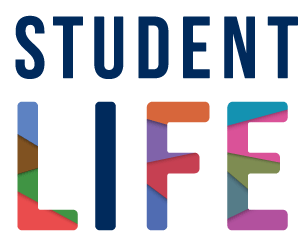
Posted November 2, 2021
By Kirsty Clarke
Although most students arrive at U of T with strong academic skills, university life can bring unexpected changes and challenges. Some students feel unprepared for the rigors of academic study, and seek assistance in addressing their concerns and building their skills.
The Academic Resilience Team of Rahul Bhat (Resilience Program Lead) and Kate Bowers (Learning Strategist – Resilience Focus) is part of the Academic Success team, focused on building programs and experiences for students to support academic resilience. Students at U of T bring some level of resilience to their academic lives and can build on that; this suite of programs helps students manage the ups and downs of university life. “This is something that they can build and develop,” says Bhat, “but it also relies on access to resources that support their success. Students are able to thrive the most when supported with resources.”
The Academic Resilience Initiatives team was formed after the Academic Success Review in spring 2020, which recommended that the department should “ensure that we are helping increasingly complex and diverse students grow and build resilience, in a strategic and effective way.”
The Council on Student Services (COSS) approved an expanded budget to invest in academic resilience programming. While the entire department supports academic resilience, the Academic Resilience Initiatives team focuses on cohort and group programming that support academic resilience –specifically on programming and curricular partnerships. They also have intentional conversations with students about the intersection of well-being and learning. Three programs, for example, are called Learning Well to demonstrate the importance of well-being/wellness related to academic success.
This year there are several programs offered: Learning Well in First Year, Learning Well in Second Year, Learning How to Learn and the Foundations for University Learning Mini Course. This winter, the Learning Well for Grads program will resume. The programs just started last October, and are well attended:
- Eight hundred sixty-five students participated in programs last year (October 2020 – September 2021). Some joined weekly sessions, some joined workshop series, and others joined a mini course focused on learning foundations over the summer.
- This year, first-year and second-year programs have just under 30 students each.
- The Learning How to Learn workshop series has attracted up to 100 students per session.
According to Bhat, “Students are responsive to building their knowledge about the science and practice of learning, and thinking about the foundational things that can make for effective learning.”
They examine not just academic success, but also balancing time management, self-regulation, mental and physical health, and co-curricular opportunities that students can use to thrive in all areas of their university experience. These programs identify helpful resources for students and teach them how to navigate to the resources they need most among the many options offered at U of T.
“We had students write letters to their future selves about what they learned in Foundations,” says Bhat. “They wrote really touching letters of support and care. Last year a student said: ‘I was just floating around doing work without much thought to it, but after this program I feel way more confident with developing strategies to tackle assignments and deal with stress and motivation.’ ”
The Academic Resilience Initiatives team has also developed a partnership with the Department of Statistics, experimenting with embedding strategies that support academic resilience in courses – as a workshop series for first-year students, and as individual lectures embedded in third- and fourth-year courses. This represents a future pathway to meeting all students where they are, in case they are not seeking the support of not seeking the support of the Academic Resilience Team themselves.
Bhat explains, “We are also working with colleagues at Centre for Teaching Support and Innovation (CTSI) and Office of the Vice-Provost, Innovations in Undergraduate Education (OVPIUE) to think strategically about integrating academic resilience and resourcefulness practices within teaching and course design and program design. How can we reach students who wouldn’t otherwise attend programming? We think it’s through integrating this as manageable and doable things within curricular experiences.”
“U of T students demonstrate tremendous academic resilience every day,” says Bhat. “As a university we can support this by providing them with the foundational skills they need to thrive and making available resources easy to navigate. Our small team is one part of a system of support within the division that supports academic resilience.”




